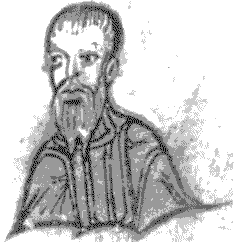Guide to Evagrius Ponticus
edited by Joel Kalvesmaki
Evagrius Ponticus (b. 345 in Ibora; d. 399 in Egypt), a monastic theologian, was one of the most talented intellects of the fourth century. Circulating in elite ecclesiastical circles of Cappadocia and Asia Minor, he began his career under Basil of Caesarea and Gregory of Nazianzus, serving with the latter in Constantinople through a stormy tenure that culminated in the Second Ecumenical Council (381). Known then as a brilliant heresiologist, Evagrius seemed destined for a successful ecclesiastical career. He chose a different course, and fled to Jerusalem, where he took vows in the monastic communities of Rufinus and Melania. From there he traveled to Egypt and lived in monasteries in Nitria and Kellia. In Egypt he wrote extensively in a variety of genres—letters, proverbs, brief sayings (chapters), and treatises—nearly all geared toward explaining and analyzing vice and virtue, demons and angels, psychological and psychosomatic phenomena—in sum, the life of the ascetic. His accounts are set, sometimes explicitly, oftentimes pensively, within a well-developed metaphysical system that responded to both classical philosophy (Plato, Aristotle, Stoicism) and the theology of some of the most accomplished Christian intellectuals (Clement of Alexandria, Origen, Gregory of Nazianzus).
Although well connected in his own time, Evagrius fell into disrepute in the sixth century, when his writings, along with those of Origen and Didymus the Blind, were associated with a theological strain of Origenism condemned at the Fifth Ecumenical Council (553). The more speculative of Evagrius's writings fell out of circulation in the Byzantine Greek manuscript tradition. Those works survive in a number of other languages, principally Syriac, Armenian, Georgian, and Arabic—linguistic traditions whose reception of Origen and Evagrius were not as controversial. His writings deeply influenced many theologians and monastic writers, including Sts. John Cassian, "Dionysius the Areopagite," Maximus Confessor, John Climacus, Isaac of Nineveh, and Simeon the New Theologian. The Armenian Orthodox Church commemorates him, as did some Syriac-speaking Orthodox churches, but his condemnation is maintained by the Eastern Orthodox Church and, with important caveats (e.g., his recent inclusion in Butler's Lives of the Saints), the Roman Catholic Church.
This Guide provides definitive lists of Evagrius's works, of editions and translations of those works, and of studies related to his life and thought. It includes an inventory of key ancient sources that refer to Evagrius and a display of imagery from the ancient world. Updated quarterly, the Guide will gradually introduce a manuscript checklist, images of manuscripts, transcriptions of those manuscripts, and open source critical editions of Evagrius's writings.










 Stumble It!
Stumble It!

No comments:
Post a Comment